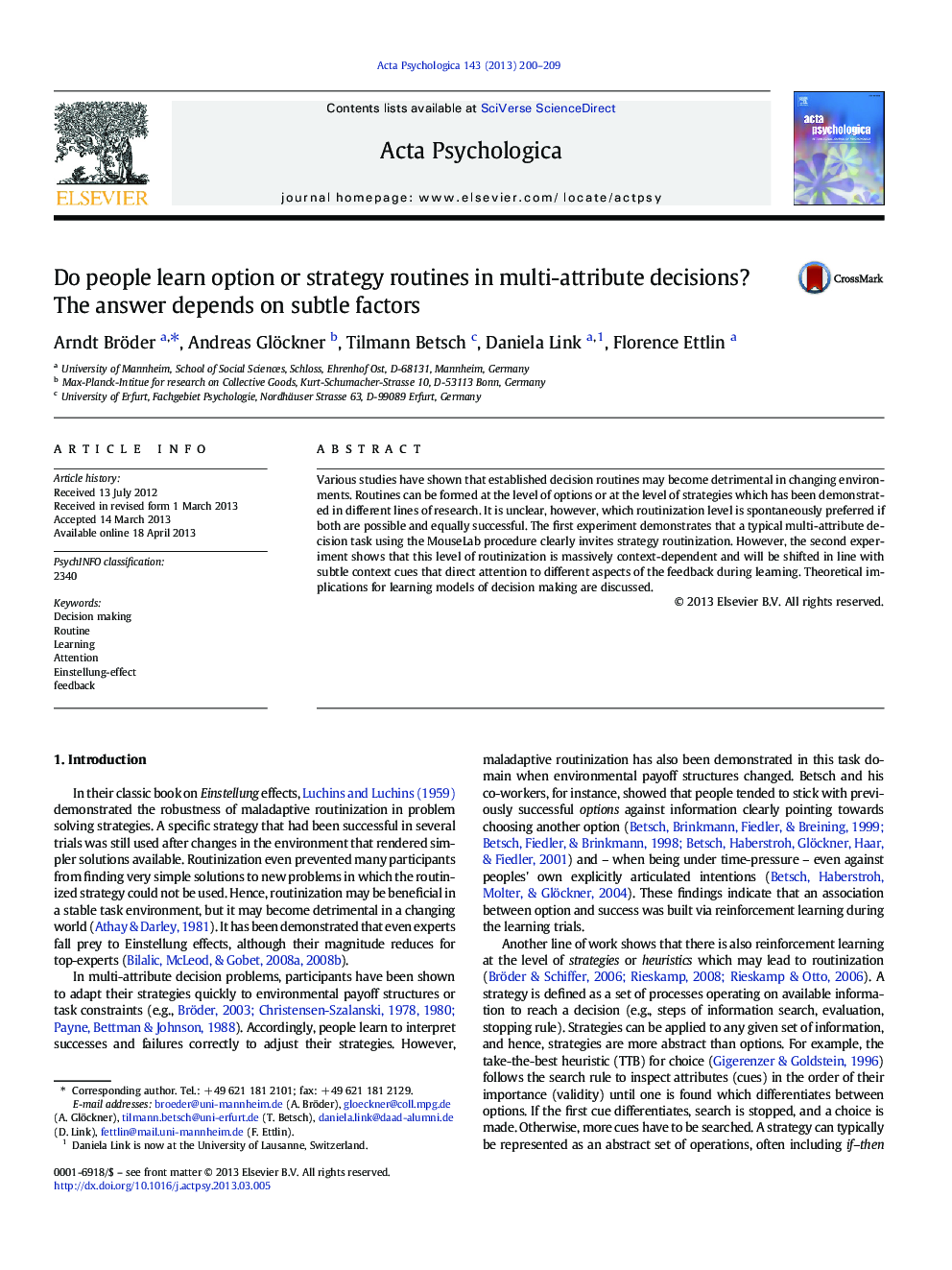| Article ID | Journal | Published Year | Pages | File Type |
|---|---|---|---|---|
| 919832 | Acta Psychologica | 2013 | 10 Pages |
•Using a novel approach, we investigate routinization in decision making.•We investigate whether routines are built at the level of decision strategies or at the level of repeated choice of a particular option.•Experiment 1 demonstrates strategy routinization.•Experiment 2 qualifies this finding: routinization depends on the kind of feedback.•This has serious implications for theory as well as for methodology.
Various studies have shown that established decision routines may become detrimental in changing environments. Routines can be formed at the level of options or at the level of strategies which has been demonstrated in different lines of research. It is unclear, however, which routinization level is spontaneously preferred if both are possible and equally successful. The first experiment demonstrates that a typical multi-attribute decision task using the MouseLab procedure clearly invites strategy routinization. However, the second experiment shows that this level of routinization is massively context-dependent and will be shifted in line with subtle context cues that direct attention to different aspects of the feedback during learning. Theoretical implications for learning models of decision making are discussed.
